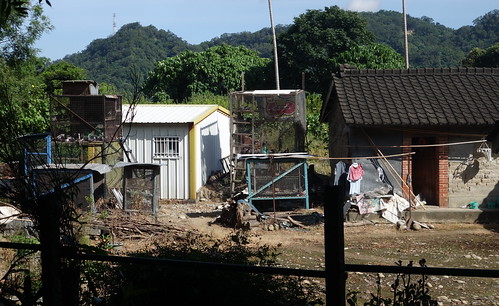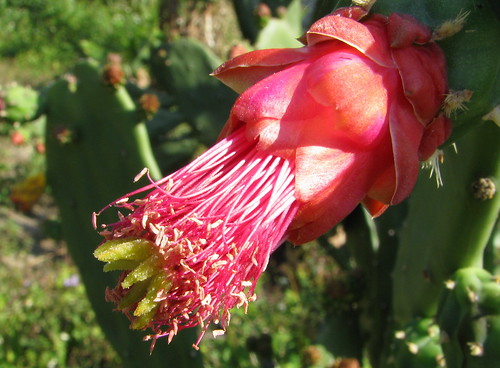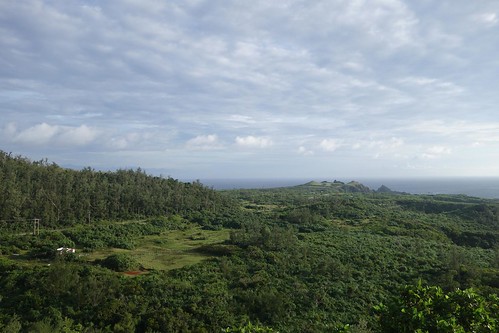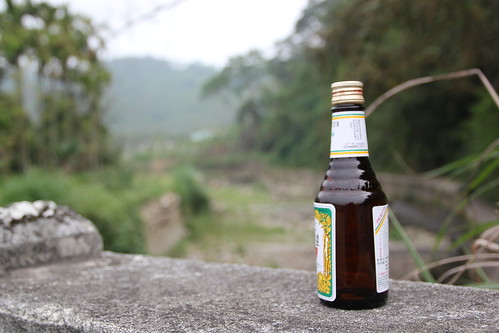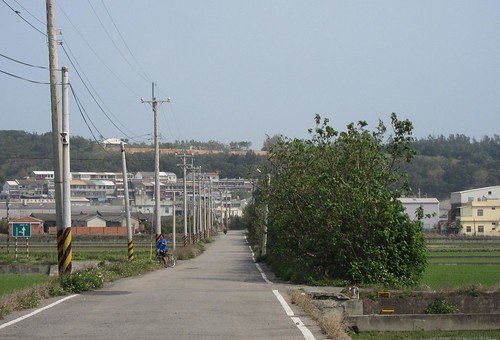UPDATE 9: Three demands
from students to Premier Jiang
Excellent: Anthropologist Kerim Friedman at
Savage Minds on the Student Movement.
Anthropologist of Police in Taiwan
Jeff Martin on Policing an Occupied legislature.
ketegalen media with a round up
UPDATE 8: TaiwanExplorer says on Facebook:
1. It's past 11PM now, students are still inside the Legislative Yuan listening to speeches. Watch it live here:
http://www.ustream.tv/channel/longson3000
2. #Taipei Police Department made the two protests legal (one inside the Legislative Yuan and one outside), so there is no need for the police to use force and try to get the students out
Source: http://bit.ly/1la6kkV
3. Police imposed traffic control in the area. Authorities advise to use public transportation. It's common for any legal protest taking place in Taipei.
4. Police increased their presence, they are watching, mingling. There are water cannons on standby "in case people get out of control", but no force has been used against the protesters so far, and protesters have been peaceful all the time.
Source: http://bit.ly/1pi2cwD
5. At 9PM there were around 25,000 people protesting outside the Legislative Yuan in support of the students, a lot of them came from other parts of #Taiwan. At 11PM were 28,000.
Source: http://bit.ly/NA27be
6. President Ma has not made any statements so far, he reportedly "went home to eat dinner with his mother".
Source: http://bit.ly/1mkQW5F
7. Some KMT lawmakers suport item-by-item review of the trade pact, which is the main request by the students
Source: http://bit.ly/1im0Uji
UPDATE 7: TVBS poll out. 48% support students, 40% oppose, only 21% support pact, 70% favor line by line review. That's in a pro-KMT media organ.
UPDATE 6: Lots of rumors flying around that tonight the police will move in to clear the legislature. Wang Jin-pyng's refusal to act has dumped the mess in Ma's lap, and he lacks the common touch and is neither patient nor subtle. Lots of police bussed up from elsewhere in Taiwan.
Apple reminds that today is 24th anniversary of the day
Lee Teng-hui went down to talk to the Wild Lily movement.
A friend posted to Facebook:
Democracy at its best. I went to the Taiwan Parliament building to see the reality of the student protests and occupation of the building. I would fathom there are about 10,000+ people in protest. It was peaceful and organized -- there is a designated lane for medical emergencies, water stations, and locations to sit and organized lines for people to walk. I am astonished to see how organized the students put this into action. I salute their efforts, maybe the U.S. should learn something from how well the Taiwan students organized this protest.
UPDATE 5: Frozen Garlic asks, sensible and eloquent,
can extra democratic measures be democratic.
Frank Hsieh speaks in English on the occupation of the legislature. Note that two of his demands are NOT the student demands.
Letters from Taiwan with Chris Hughes' analysis of the Taiwan economic system
UPDATE 4: One of my students just walked into my office, back from the protest. She said that when the taxi driver took her down to the protest last night, when he found out she was going to join the protest, he knocked $200 NT off her fare.
No violence overnight. Yay!!!!!!
UPDATE 3: China Post says flower shops have sent over sunflowers to the sunflower student movement
UPDATE 2 Friday morning Taiwan time. Student statement:
“It has now been 48 hours since we occupied Taiwan’s legislature. We, a non-partisan group of students, civic activists, and people from all walks of life – have taken over the Legislature in protest against the undemocratic and autocratic manner in which the Cross-Strait Service Trade Agreement has been handled by the government and the legislature.
Since our occupation, we have seen tens of thousands of citizens from all across the country join us in support of our demands. Doctors have formed medical stations, lawyers have created pro bono legal teams, and professors have relocated their classes here. All this could not have been possible without the help and support from our fellow citizens concerned about Taiwan’s future.
As of 3/20, our demands include:
1. We demand that Legislative Speaker Wang Jin-pyng (王金平) immediately void Legislator Chang Ching-chung’s announcement that the CSSTA has passed the committee stage.
2. President Ma Ying-jeou should begin dialogue with us and negotiations over:
(a) the rejection of the CSSTA; and
(b) the passage of a bill for monitoring cross-strait agreements, and a promise to refrain from negotiating such agreements in lieu of the bill.
If our demands are not met by noon on Friday, March 21, our protest will continue and we will begin our next round of action.”
UPDATE 1: CFR writing on Taiwan is usually crap.
What a refreshing change from Lauren Dickey. Banyan over at the Economist. Banyan
at the Economist focuses on the DPP and doesn't seem to get that the students are acting on their own. It's so awesome that no one in the mainstream media has bothered to look at the Services Pact itself to see what a dog it is. That would take work and wouldn't fit Establishment ideologies, after all.
+++++++++
Previous (through Thursday night Taiwan time:
English language liveblog from inside. Just heard over 20,000 down there tonight. Much fear there will be police violence against the protesters.
Thousands now out supporting the students, with students from universities all over Taiwan coming up to join them and to rally outside the legislature to support them. Even the KMT paper
said 20,000 rallied there on Wednesday night. My Facebook and email are overwhelmed with pictures, etc. Really an amazing moment in Taiwan's history. Dafydd Fell explained i
n the Taipei Times today....
Over the past six years pressure has been building up that could have been released through dialogue. The current crisis was entirely avoidable. Students today are no more radical than those of 1990 and may well be more conservative. It seems unimaginable that students would have adopted such tactics 25 years ago. That student protesters have been willing to go to the extremes of occupying the Legislative Yuan represents a failure of political society to respond to the public.
To the outsider, it may seem hard to comprehend that so much anger has built up due to the government’s refusal to review a services trade agreement. However, the root of the problem has been a gradual building up of tensions and frustration within society.
The closing paragraphs that identify the fake 2004 election "crisis", simply the KMT going crazy because it lost the election, and the equally fake "red ant" march against Chen Shui-bian, another faux protest conducted entirely by KMTers, are wrong. Those were not systemic crises, but instead showed the nationalists' ongoing inability to live in a democracy. Perhaps that's what Fell means, though, but can't say out loud.
This crisis has similar roots. The DPP has been using legislative procedures and other delaying tactics to delay voting on the Services Pact (this English version of NTU
Econ Department Chair explanation of why the Services Pact will be bad for Taiwan explains why the pro-Taiwan side is opposed to the pact). The student invasion of the legislature was triggered by a KMT legislator's sudden by-passing of the review process, and declaring the review over before it had even begun, after there had been an agreement for a line-by-line review of the pact, something supported by more than 70% of the public in polls. The KMT does not want a vote; they are trying to declare it law without a vote, because if the KMT legislators voted on it they would have to publicly vote, and thus, make a public declaration of their position. And after the failure of ECFA, nobody wants this dog of an agreement on their resume in the upcoming legislative elections. The fact that KMT legislators don't want to publicly vote on this dog should erase any doubt as to what a shipwreck the Services Pact really is.
J Michael Cole, a Taipei-based journalist, has been present throughout and has turned out some great pieces on it. First, the local media has been busy
smearing the students...
Although there were a few incidents — a broken window, light damage to computers, chairs stacked up to prevent police intrusions — the legislature was never ransacked, as claimed. Furthermore, protest leaders repeatedly beseeched participants to avoid causing damage. Lin Fei-fan, one of the student leaders inside the legislature, went out of his way to remind activists not to put water bottles directly on the desks to avoid damaging the wooden surface (the so-called vandals evidently forgot to bring coasters along). Moreover, the impressive garbage-collection efforts that were launched around the legislature after March 17 should put to sleep any notion that the occupiers and their supporters are bent on destroying the Legislative Yuan.
Having created the myth of activists as vandals, later in the night “news” got out that the activists had engaged in binge drinking and were “making out,” preposterous behavior that, interestingly enough, never showed on the continuous video stream. Nobody seemed to question how illogical a decision it would be for the activists, having set up a live feed, to engage in activities that were certain to discredit them and their cause. Still, some media picked it up, and it became “fact.”
The Taiwan media has been simply awful and in my talks with students at CGU, who have classmates and friends among the protesters, this has led to much resentment. The "making out" became "fornication"in some media reports, which, considering how the legislature has screwed Taiwan, seems only fair return.
More fundamentally, the media both local and international have attempted to paint the protesters as dupes of the DPP. But they have kept them at arms length. The DPP and TSU legislators at the protest are there to keep the police from harming the students.
Another smear I've heard in KMT circles is that the students are all people who can't get jobs, not engineers and doctors, but history and lit majors. Nonsense, as they are actually students from the major universities of Taiwan including mine (a medical university), who have bright futures in many different fields. It is no exaggeration to say that these are among the cream of Taiwan's students.
Scarily, gangsters showed up the other night bearing knives and attempted to cause a fight. They failed. But they are a harbinger of what will probably happen at other pro-Taiwan events, and quite soon.
J Michael's
piece over at The Diplomat is also excellent review. Cole notes of the sequence of events:
Negotiations on the matter resumed in the legislature in March 2014, when DPP Legislator Chen Chi-mai secured the right to plan the agenda for a clause-by-clause review as agreed earlier. However, KMT legislators blocked the process, leading to clashes in the legislature over a period of three days. Meanwhile, civic organizations launched a sit-in outside the LY.
Then, on March 17, with the legislature brought to a standstill and the DPP occupying the podium, Chang, citing Article 61 of the Legislative Yuan Functions Act, announced that the review process had gone beyond the 90 days allotted for review. The agreement should therefore be considered to have been reviewed and be submitted to a plenary session on March 21 for a final vote. Immediately, the Executive Yuan “congratulated” Chang for successfully reviewing the agreement, even though no review was ever held, and experts later noted that Article 61 did not apply, as the CSSTA is a component of the ECFA, which itself is a “prospective treaty” (准條約) and not an executive order. With 65 members in the 113-seat legislature, the KMT was assured a victory, with expectations that the pact could be implemented as early as June 2014.
The sudden announcement caught everybody by surprise and sparked anger among the public. The sit-ins continued on the evening of March 17, followed by a much larger one on the evening of March 18.
The foreign media has actually picked up on this, which is good. The
VOA provided a totally pro-KMT frame for the event, very sad to see, especially for the alleged voice of a western democracy. The event is treated as if the students are part of the opposition party (they are not) and events are misrepresented. For example:
A spokesman for the student protesters, Huang Yu-fen, said his group is demanding that a government committee revoke its initial review of the deal.
"We demand Legislative Yuan Chairman Wang Chin-ping declare directly that the decision made by interior committee yesterday is invalid. And we ask President Ma Ying-jeou to come here to respond to the people's demands in person," said Huang.
But as we know, the students occupied the legislature because
the review was never carried out as planned. The students do not want the review "revoked", they want
the review carried out as agreed. The "decision made by the interior committee yesterday" was the decision to pretend the review was carried out. This only appears further down in the text and as the one point in the "opposition's" favor -- the framing is obvious.
CS Monitor writes:
The occupation was unusual even for a city accustomed to protests and a parliament where lawmakers occasionally brawl with one another. But it signals anger with President Ma Ying-jeou’s ruling Nationalist Party for scheduling a vote without an item-by-item review of the deal that the main opposition party was expecting. The trade deal was signed in June 2013, but has not yet been ratified.
.....
The opposition party had asked for the review to protect Taiwan service sectors that could be hurt by competitors from the much larger mainland Chinese market, but the Nationalists felt that an item-by-item vote would take too long and that eight public hearings on the pact sufficiently got the word out about the deal’s content.
The "eight public hearings" that the CSM report refers to were actually crammed into the space of a single week by the KMT, obviously to reduce the ability of affected sectors to comment. The line-by-line review had been agreed upon during party-party negotiations; naturally the opposition had been "expecting" it. Although it should be noted that Interior Committee Head Chang said the line by line review did not mean that changes could be made to the text... heh.
AP also reported, the students are "several hundred opponents"
of the trade pact, though they have been careful to say they are opposed to the way the democratic procedures have been hijacked by the KMT to ram the pact through.
WSJ had a
good piece, saying that the number of students was 1,000 and quoting student leaders.
Bloomberg's is also pretty good.
Wang Jyn-ping, the KMT Speaker of the Legislature, won his court case and will remain in the KMT. As Speaker has the formal authority for clearing the legislature, it is the legislature's business who occupies its buildings, after all, and institutions in Taiwan are often sticklers for deferring to the appearance of who has power over what. So they deferred to him, and he apparently has no problem with the students being there, he said in a public statement earlier today, so hopefully there won't be clashes tonight as some are fearing.
As for me, I think the students have missed another opportunity but we'll see; hopefully I am wrong.
Protests in other Taiwan cities taking place in support, here is
one report on K-town.
Video from K-town (h/t to Ben at
Letters from Taiwan).
The NextMedia animators take on the student occupation of the legislature. Forward the 300! And speaking of comedy, at one point WSJ had on its web page:
The day's China news in pictures: Tibetans dance under pear trees in Sichuan, protesters clash with police inside Taiwan's legislature, smoke rises from a forest fire and more.
__________________
Daily Links:
_______________________
[Taiwan] Don't miss the comments below! And check out my blog and its sidebars for events, links to previous posts and picture posts, and scores of links to other Taiwan blogs and forums!
